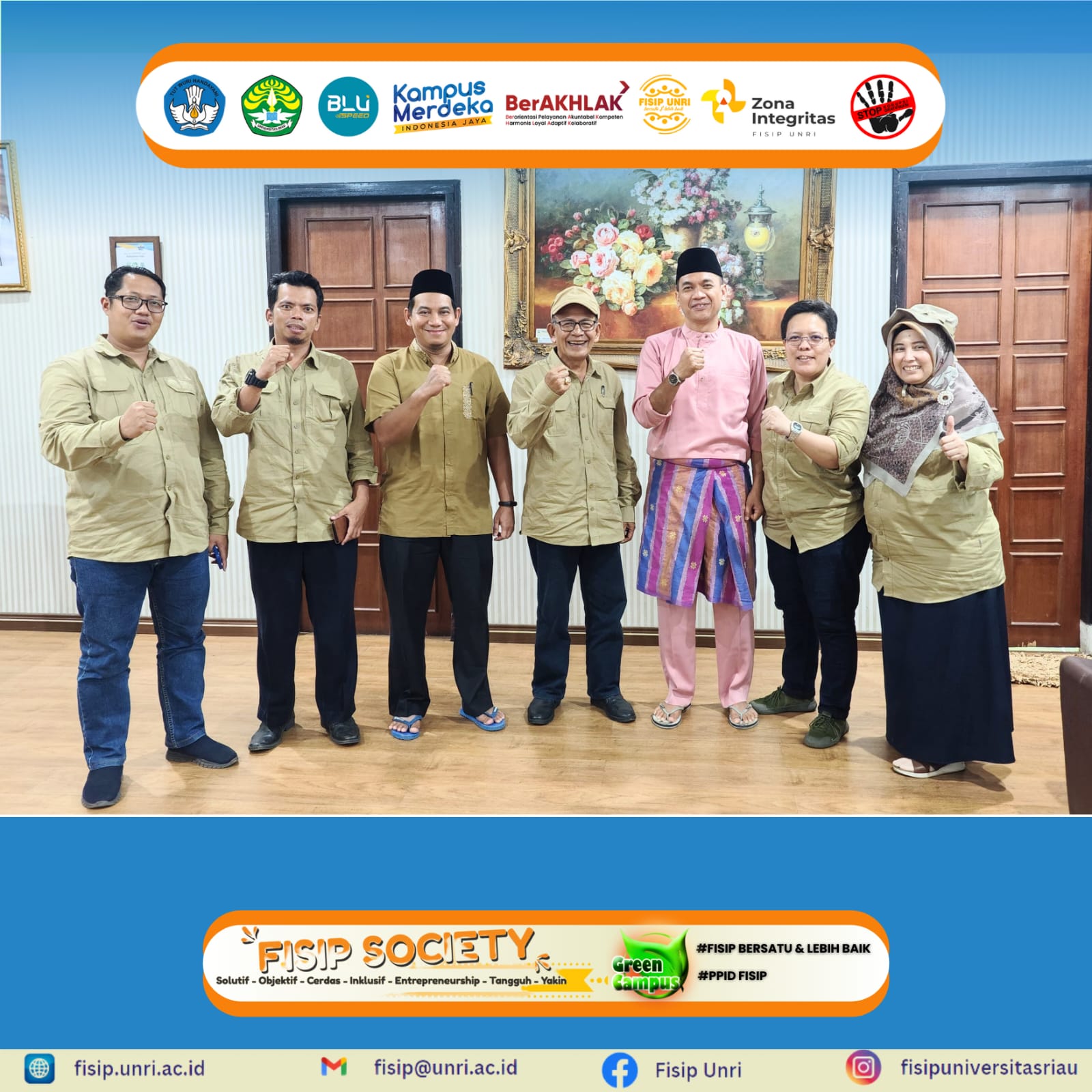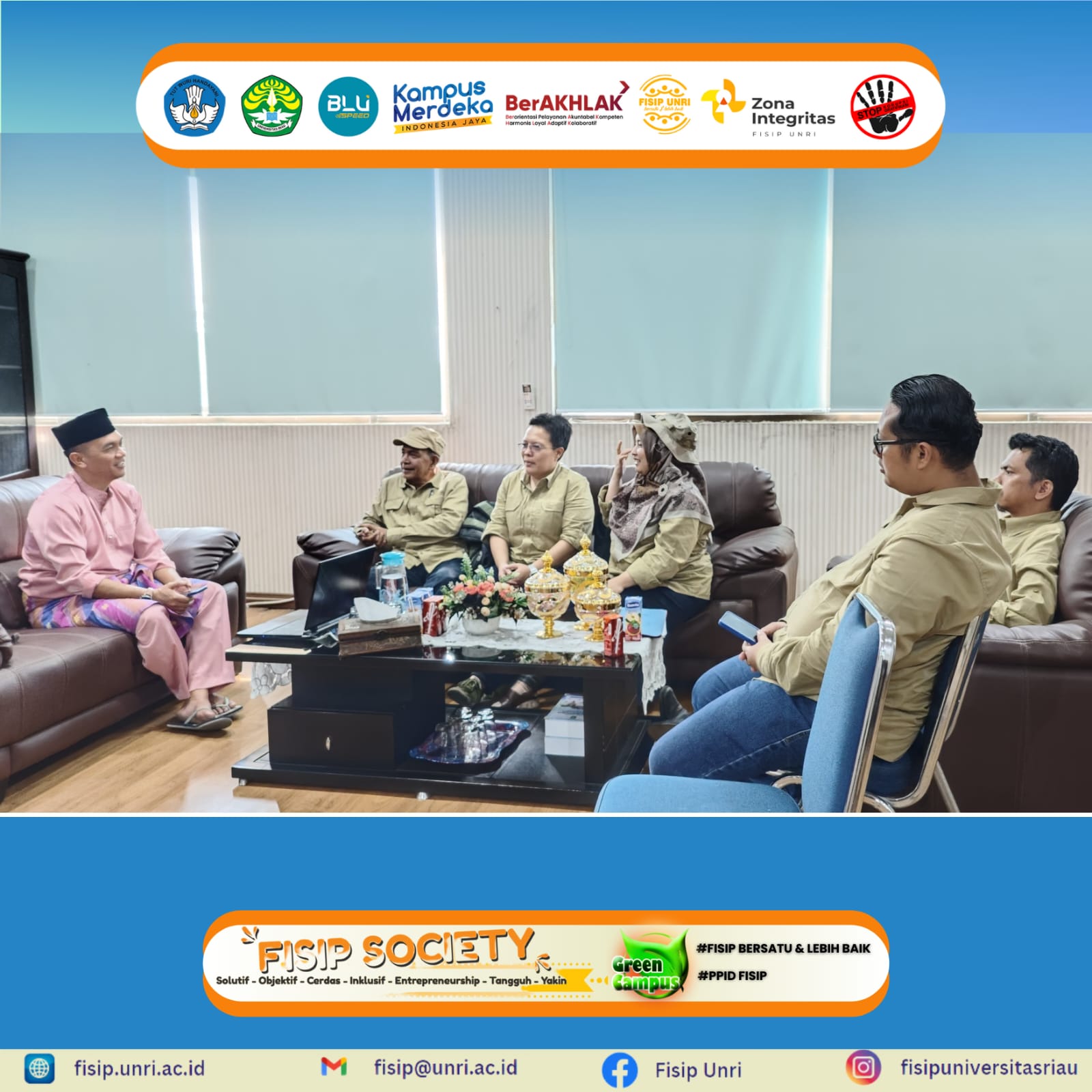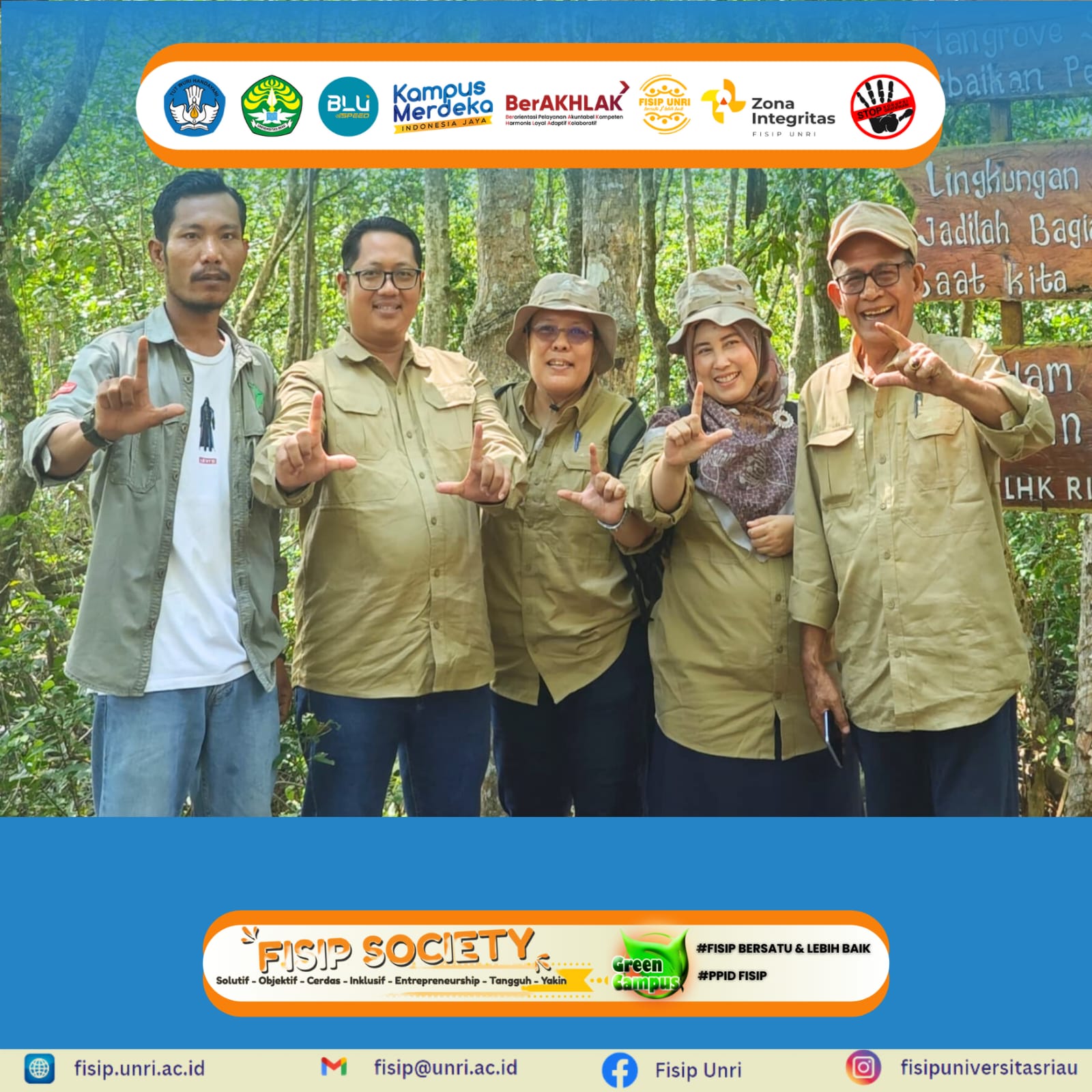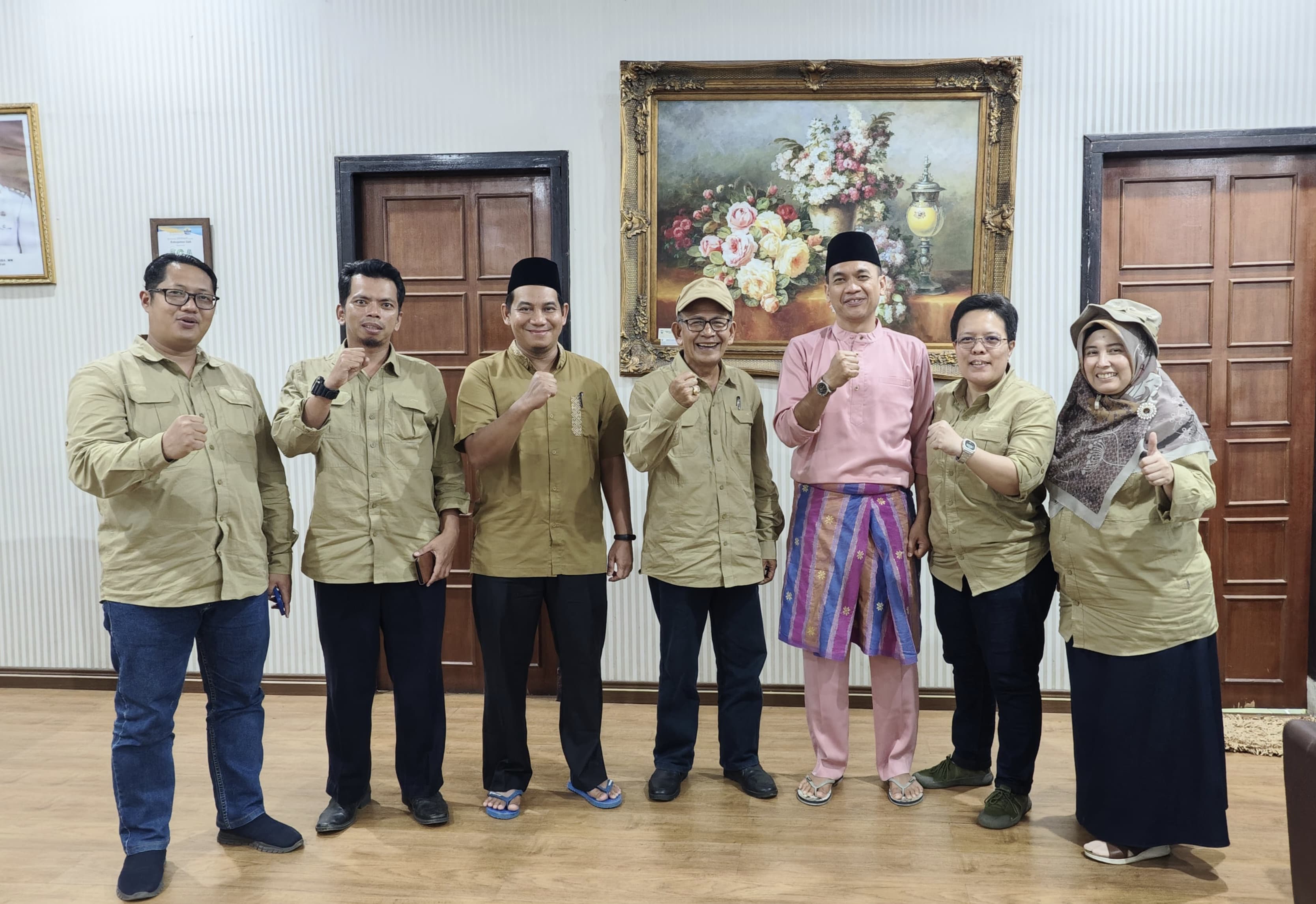Pekanbaru, September 27, 2024 – The research, which is carried out under the Flagship Research Scheme, is led by Mimin Sundari Nasution, S.Sos, M.Si, with team members including Prof. Dr. Zaili Rusli SD, M.Si, Dr. Dadang Mashur, S.Sos, M.Si, Dr. Zulkarnaini, S.Sos, M.Si, Dr. Mayarni, S.Sos, M.Si, and Dr. Fajriani Ananda, S.Sos, M.Si. The team aims to identify the challenges faced in developing a sustainable Mangrove Ecotourism area in Sungai Apit Subdistrict, Siak Regency, explore the participation of local communities in managing sustainable Mangrove Ecotourism, and examine the implementation of the Siak Green Program in the sustainable development of the Mangrove Ecotourism area in Siak Regency. The study will develop a community-based management model that can support environmental conservation and enhance the local economy.
The research team was welcomed by Ari Nufizal S.T, M.T., the Secretary of the Regional Development Planning Agency (Bappeda) of Siak Regency, who, as the leading sector for development planning, expressed full support on behalf of the local government to ensure the smooth progress of this research. "We hope the results of this research can be implemented in regional development policies, especially in managing the Mangrove Ecotourism area. We are ready to provide the data needed by the research team, and we plan to conduct a Focus Group Discussion (FGD) with relevant departments," Ari added.

Prof. Dr. Zaili Rusli SD, M.Si stated that this research represents a concrete contribution of the university in supporting the achievement of the Sustainable Development Goals (SDGs), particularly in terms of environmental protection and empowering local communities. Prof. Zaili hopes the findings of this study can provide recommendations for the Siak Regency Government and be implemented in regional development policies, particularly in the management of the Mangrove Ecotourism area.
In a separate occasion, the Dean of the Faculty of Social and Political Sciences, University of Riau, Dr. Meyzi Heriyanto, S.Sos, M.Si, emphasized the role and responsibility of academics in promoting an inclusive, research-based regional development process. "As academics, we have a significant responsibility to ensure that regional development is not only focused on the economic aspect but also considers environmental sustainability and the well-being of local communities. We are committed to continuously supporting the local government through research that is applicable and beneficial to the wider community," added Dr. Meyzi. {RIRY}


